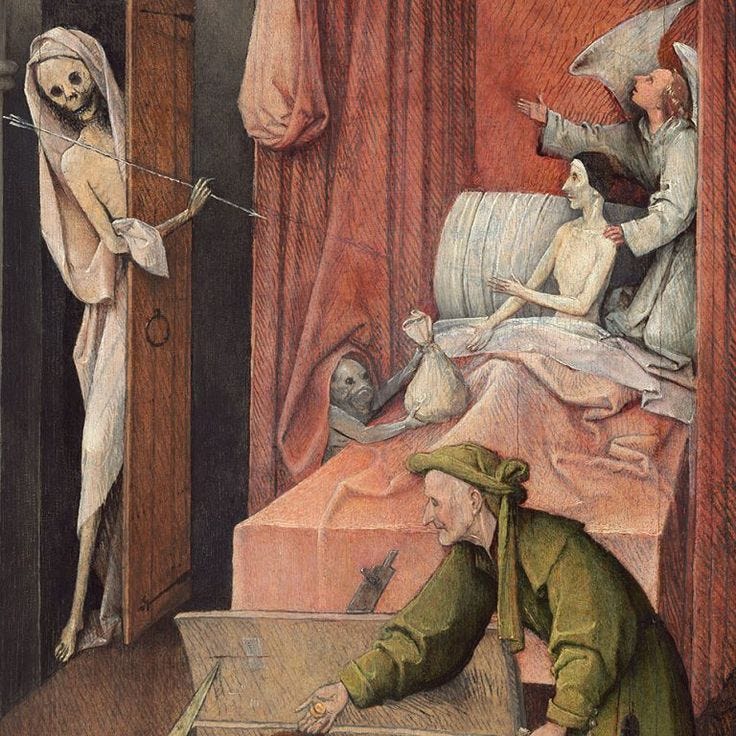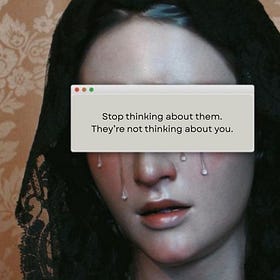the self-curated museum of unmet needs
how we curate disappointment to prove we deserved better
I've been thinking about how we become archaeologists of our own pain, carefully cataloging every slight, every moment of neglect, building elaborate museums in our minds where we curate evidence of how we've been wronged. There's something almost scholarly about it—the way we preserve each text left unanswered, each plan that fell through, each conversation that ended too abruptly. We become forensic experts of disappointment, analyzing tone and timing with the precision of detectives working a cold case.
But what strikes me as curious is how this impulse to document and preserve might actually be a form of self-protection masquerading as self-torture. I wonder if we collect these grievances not because we enjoy the pain, but because we're trying to build a case for our own worthiness—as if accumulating enough evidence of mistreatment will somehow prove, definitively, that we deserved better.
The Romans had this concept called memento mori—remember you will die. They'd whisper it to generals during triumph parades, a reminder that glory is temporary. I think we need something similar for relationships: memento te—remember yourself. Because somewhere in all that careful documentation of how others have failed us, we lose track of the most important piece of evidence: our own presence in the equation.
I've noticed that when I'm most invested in proving someone else's inconsistency, I'm usually being inconsistent with myself. While I'm building my case about their mixed signals, I'm sending plenty of my own—saying I'm fine when I'm not, pretending their behavior doesn't affect me while simultaneously cataloging every instance of it, claiming I want honesty while carefully curating which parts of my truth I'm willing to share.
There's something almost anthropological about watching ourselves in these patterns. Like observing a tribe whose customs we can describe but don't quite understand. Why do we do this dance where we simultaneously crave proximity and create distance? Why do we become archaeologists of pain instead of architects of joy?
Maybe it's because disappointment feels safer than hope. There's a terrible comfort in being right about someone's limitations—it confirms our suspicions about the world and protects us from the vulnerability of expecting more. But I'm starting to suspect that our expertise in cataloging disappointment might be keeping us from developing fluency in recognizing care when it appears in unfamiliar forms.
What if, instead of becoming curators of how we've been failed, we became students of how we participate in our own experiences? Not in a self-blaming way, but with genuine curiosity about our own agency in the stories we tell ourselves about others.
As always, thanks for reading with me. Writing has been an integral part of my journey so if you enjoyed this post, please consider hitting the like button and/or sharing it to help boost its visibility. I appreciate you so much. xo
catch up on this week’s posts ICYMI —
don't take it personally, it wasn't even about you
Last weekend, something curious happened to my nervous system. One of my Substack essays had what people generously call "gone viral"—hundreds of comments flooding in, most of them thoughtful, encour…
machine yearning
After I published my essay on self-pursuit last month, I started receiving lots of messages from people who wanted to know the practical mechanics of it all. I'd mentioned in passing that I use AI for daily journaling, calling it
the big, dirty C-word
Quick heads up: this one’s too long for email so ya might wanna open in app ツ












Really well written!
I think this fixation to dig up our pain from past is nothing but ego in a hidden, passive form. It's the gasbag in reverse-- both need attention, one through glory other through agony.
You get caught up in the tragic hero game--its still all about me, me, me....
Real joy springs from self giving and forgetting yourself and living for somebody else.
Ankur